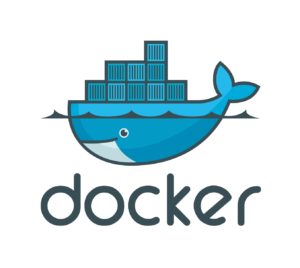
Modern day moby dick
Hello to all ! Here we are on air with a famous person you may know: Docker. Today, we are going to answer several questions that our dear interlocutors ask about our blue whale:
- Who are you ?
- What do you bring to the IT world?
- How does it work?
- You are often confused with your cousin Vagrant, what do you have to say?
- According to you, what are your advantages and disadvantages?
- A last word for the end?
WHO ARE YOU ?
Hello everyone and thank you for welcoming me today to the Direct. My name is Docker and I am four years old. My father's name is Solomon Hykes, I was later adopted by the Docker, Inc. family. I have a brother and a sister by the name of Docker Compose et DockerMachine. I'm a freeware container builder and manager and proud of it!
WHAT DO YOU BRING TO THE COMPUTER WORLD?
What I bring is quite simple: allow anyone to run a service, starting a database for example, on any machine transparently. This allows developers to collaborate more easily with each other because everyone keeps their development environment and companies can deploy their technical solutions in an agile way.
HOW DOES IT WORK?
To deliver such a service, I use what I call containers. This is'a box containing all the necessary tools (and only these ideally) to run your service. Thanks to this, these tools do not need to be installed on the so-called host machine (the one that will contain the containers). To create containers, just feed me a Dockerfile, it's a bit like plankton. Once the Dockerfile is ingested, I will create a container with the parameters provided in it. A container is only built once and can then be replicated infinitely. You can also find me on all Linux, Mac and Windows distributions!
YOU ARE OFTEN CONFUSED WITH YOUR COUSIN VAGRANT, WHAT DO YOU HAVE TO SAY?
Vagrant may be a close cousin, but we are very different. Vagrant is a tool for creating and managing virtual machines. Unlike containers, the virtual machine embeds a whole distribution which makes it much heavier and therefore more resource-intensive with respect to its host.
IN YOUR OPINION, WHAT ARE YOUR QUALITIES AND FAULTS?
To be honest, I don't think I have any flaws... but if I had to be objective:
- QUALITIES
- I can be taken in hand very quickly and my documentation is very complete.
- My containers and I deliver services quickly and efficiently to any address. In less than thirty minutes, otherwise it's free!
- Your host machine remains free of all dependencies and libraries for development, apart from me.
- If scalability is an issue for you, I'm your whale.
- DEFAULTS
- With great power comes great responsibility. If you want to do complex things, then a lot of documentation you will read.
- I add an additional layer above your architecture.
- Have you ever worked with whale? I'm a whole new stack for you to learn.
A LAST WORD FOR THE END?
Even several, here are some tips if you want to be part of the Docker adventure:
- When creating a container, a base is required. Preferred the Debian or Alpine base, because these are light.
- We sometimes have need to run multiple commands to start a service. The solution in a Dockerfile:
- ENTRY POINT [“MY_ORDER_1”]
- DCM [“ARGS1”, “;”, “MY_COMMAND_2”, “ARGS1”, “ARGS2”, etc]
Thanks to you Docker for answering our questions. If you liked this interview, please share it on social networks for your friends, relatives or even your dog who knows.
Next time we will have Heroku on the air.
Guillaume, JS-Republican @JSRepublic
[actionbox color=”default” title=”” description=”JS-REPUBLIC is a service company specializing in JavaScript development. We are an approved training center. Find all our technical training on our partner site dedicated to Training” btn_label=”Our training” btn_link=”http://training.ux-republic.com” btn_color=”primary” btn_size=”big” btn_icon=”star” btn_external =”1″]
